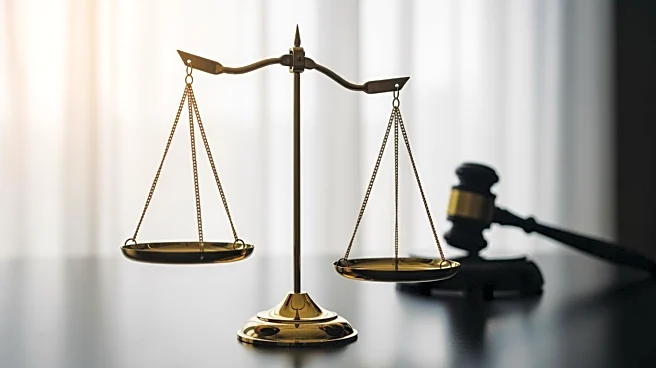What's Happening?
Prediction market traders have significantly reduced the odds that the Supreme Court will uphold President Trump's tariffs. This shift follows a hearing where several conservative justices joined their
liberal colleagues in expressing doubts about the legality of the administration's trade powers. The tariffs, imposed under the International Emergency Economic Powers Act, have been challenged for overstepping presidential authority and infringing on Congress's power to tax. Lower federal courts have already ruled against the tariffs, which target imports from several U.S. trading partners. The Supreme Court has yet to issue a decision, leaving the future of these tariffs uncertain.
Why It's Important?
The Supreme Court's decision on Trump's tariffs could have significant implications for U.S. trade policy and international relations. If the tariffs are struck down, it may lead to a shift in trade dynamics and affect industries reliant on imports. The ruling could also set a precedent regarding the limits of presidential power in trade matters, influencing future administrations. Businesses and consumers may experience changes in pricing and availability of goods, impacting economic activity. The decision will be closely watched by stakeholders in the trade sector and political leaders, as it could reshape the landscape of U.S. trade policy.
What's Next?
The Supreme Court's ruling is awaited, and its outcome will likely prompt reactions from political leaders and trade partners. If the tariffs are invalidated, there may be calls for new trade negotiations or adjustments to existing agreements. Businesses affected by the tariffs will need to reassess their strategies, potentially leading to shifts in supply chains. Political leaders may use the decision to advocate for changes in trade policy or legislative action to clarify the scope of presidential powers. The ruling could also influence upcoming electoral campaigns, as trade policy remains a contentious issue.
Beyond the Headlines
The case highlights broader questions about the balance of power between the executive and legislative branches in the U.S. government. It underscores the ongoing debate over the extent of presidential authority in economic matters, which has implications for governance and constitutional law. The decision may also affect public perception of the judiciary's role in checking executive actions, influencing trust in governmental institutions. Long-term, the ruling could contribute to discussions on reforming trade policy and the mechanisms for imposing tariffs, shaping the future of U.S. economic strategy.










